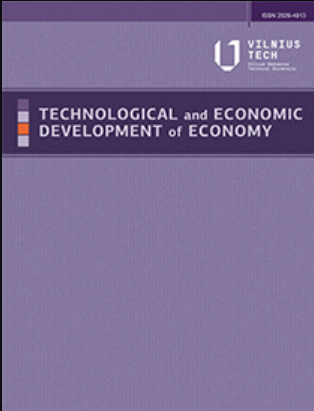数字虚假信息对生活质量的影响:模糊模型评估
IF 4.8
2区 经济学
Q1 ECONOMICS
引用次数: 0
摘要
生活质量(QoL)是一个多层面的概念,涵盖个人生活的经济、社会、环境、心理和生理层面,包括个人生活条件、幸福感、福祉和生活满意度。作为各国可持续发展和积极社会政策的重要标准,社交媒体的动态技术发展对 QoL 产生了重大影响。然而,社交媒体对 QoL 的综合影响,包括其在传播虚假信息方面的作用(这是一个主要的社会和社会经济问题),仍未得到充分探索。本研究旨在开发一种新型模糊模型,以评估数字平台上的虚假信息水平及其与人口 QoL 的相关性。本研究采用植根于专家评估的数学方法,利用知识分析和模糊集理论。本研究以真实受访者的数据和基于知识的模型为基础,开创了一种评估居民 QoL 的信息模型,将经济问题、对虚假信息的感知及其对数字平台的影响等因素纳入其中。该模糊估算模型通过对 3,036 名受访者的数据进行验证,对公民的 QoL 进行了定量评估。该模型的示例应用证明了其有效性。研究结果对政策制定者、经济和创新发展专家特别有价值,有助于建立监管和监测机制,促进可持续经济增长,制定有效的发展战略。本文章由计算机程序翻译,如有差异,请以英文原文为准。
THE IMPACT OF DIGITAL DISINFORMATION ON QUALITY OF LIFE: A FUZZY MODEL ASSESSMENT
Quality of Life (QoL) is a multifaceted concept encompassing economic, social, environmental, psychological, and physical dimensions of an individual’s life, including personal living conditions, happiness, well-being, and life satisfaction. As a vital criterion for sustainable development and active social policy in countries, QoL has been significantly influenced by the dynamic technological evolution of social media. However, the comprehensive impact of social media, including its role in disseminating disinformation – a major social and socio-economic concern – on QoL remains underexplored. This research aims to develop a novel fuzzy model to assess the level of disinformation on digital platforms and its correlation with the population’s QoL. Employing a mathematical approach rooted in expert evaluation, this study leverages intellectual knowledge analysis and fuzzy set theory. Grounded in data from real respondents and knowledge-based models, this study pioneers an information model to evaluate inhabitants’ QoL, incorporating factors such as financial concerns, perception of disinformation, and its influence on digital platforms. The fuzzy estimation model, verified with data from 3,036 respondents, quantitatively assesses citizens’ QoL. An illustrative application of the model demonstrates its effectiveness. The findings are particularly valuable for policymakers, experts in economic and innovative development, aiding the creation of regulatory and monitoring mechanisms to foster sustainable economic growth and devise effective development strategies.
求助全文
通过发布文献求助,成功后即可免费获取论文全文。
去求助
来源期刊
CiteScore
10.00
自引率
8.50%
发文量
66
审稿时长
15 weeks
期刊介绍:
Technological and Economic Development of Economy is a refereed journal that publishes original research and review articles and book reviews. The Journal is designed for publishing articles in the following fields of research:
systems for sustainable development,
policy on sustainable development,
legislation on sustainable development,
strategies, approaches and methods for sustainable development,
visions and scenarios for the future,
education for sustainable development,
institutional change and sustainable development,
health care and sustainable development,
alternative economic paradigms for sustainable development,
partnership in the field of sustainable development,
industry and sustainable development,
sustainable development challenges to business and management,
technological changes and sustainable development,
social aspects of sustainability,
economic dimensions of sustainability,
political dimensions of sustainability,
innovations,
life cycle design and assessment,
ethics and sustainability,
sustainable design and material selection,
assessment of environmental impact,
ecology and sustainability,
application case studies,
best practices,
decision making theory,
models of operations research,
theory and practice of operations research,
statistics,
optimization,
simulation.
All papers to be published in Technological and Economic Development of Economy are peer reviewed by two appointed experts. The Journal is published quarterly, in March, June, September and December.

 求助内容:
求助内容: 应助结果提醒方式:
应助结果提醒方式:


